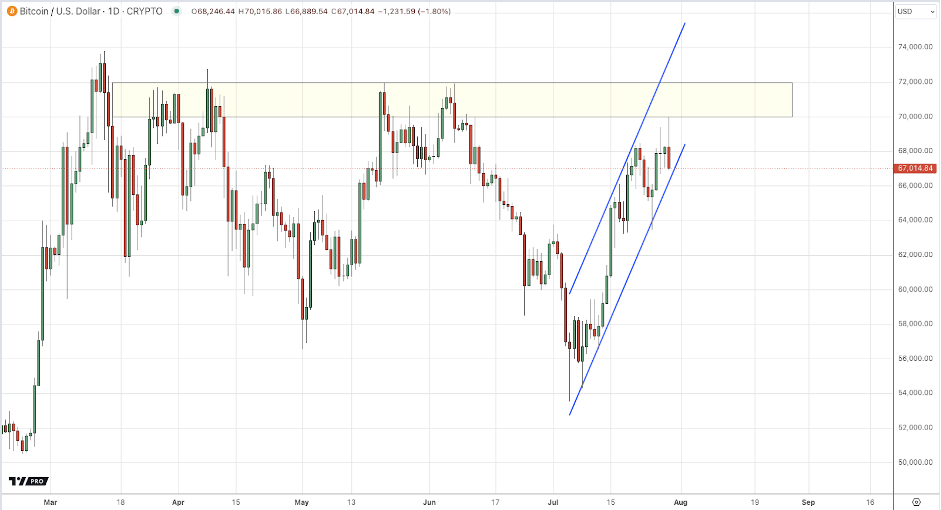With the growing popularity of cryptocurrencies worldwide and their integration into the financial system, Donald Trump has unveiled his ambitious plans to make the United States the global hub for cryptocurrencies if he wins the 2024 elections. This news has sparked heated debates in financial circles and on cryptocurrency platforms.
At a recent Bitcoin Conference, Trump shared his vision of creating a presidential advisory council on Bitcoin and cryptocurrencies. He emphasized that the rules should be shaped by those who love the industry, not those who oppose it. This stance makes a significant change for Trump, who once criticized cryptocurrencies, calling Bitcoin a “scam.” In 2019, he tweeted that he wasn’t a fan of Bitcoin and other cryptocurrencies, stressing that they were not true currencies and could contribute to instability. He also believed that cryptocurrencies should be regulated to protect consumers and prevent money laundering.
Trump’s change of heart can be attributed to the growing influence of cryptocurrencies on the global economy and their popularity among voters. He recognizes that fostering a favorable environment for crypto investments can play a crucial role in his election campaign. Speaking at the Bitcoin Conference also helped him connect with the crypto community and demonstrate his support for new technologies.
As part of his campaign, Trump pledged to retain the Bitcoins the U.S. government has seized over time, contrasting with independent candidate Robert Kennedy Jr., who suggests creating a reserve of 4 million Bitcoins. Trump’s focus on not selling off these assets might create a sense of stability in the market and reduce risks for investors worried about large asset liquidations.
Interestingly, Vice President Kamala Harris’s team, which had previously refused to participate in the Bitcoin Conference, is now showing interest in cryptocurrencies. This shift could impact the election race, suggesting potential support for crypto initiatives from some Democrats, possibly altering the SEC’s stance on the issue. As cryptocurrency regulation becomes increasingly urgent, the differing approaches in the election race could lead to significant developments in setting rules and standards for the crypto industry.
The market immediately reacted to these statements. Initially, Bitcoin’s price dipped slightly, likely due to investor concerns about potential regulatory changes or political risks. However, just days later, the price rebounded and even gained a bit. This recovery suggests that the market sees Trump’s support signals as positive for the industry. As always, investor reactions to campaign promises and potential policy shifts lead to fluctuations across all the financial markets, not just cryptocurrencies. Adjustments in expectations for the dollar’s strength can also cause significant swings in the US dollar index, reflecting broader market sentiment and speculation about the election’s impact on the economy.

Thus, given the upcoming elections and the relentless battle for influence in financial markets, Trump appears ready to make cryptocurrencies a key part of his economic strategy. His promises of a more transparent and crypto-friendly regulatory environment might attract interest not just from crypto enthusiasts but also from new investors in this rapidly growing field. Regardless, cryptocurrencies are set to become a major topic in the U.S. political arena in the coming months.
